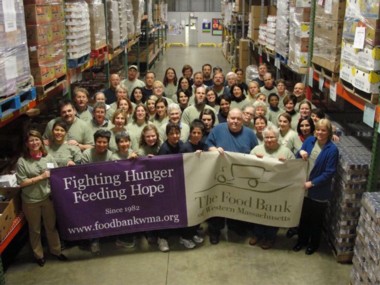Up in Arms About Computer Service Tax
To raise more money for transportation in Massachusetts, the Legislature voted for a sales tax on computer services that came into effect July 31. The 6.25 percent increase in the cost of those services has caused some confusion as to what exactly triggers the tax—having new software installed does, but what about the rewriting of existing software to get rid of a malfunction?—and made many computer-related purchases more expensive. (“Consulting and evaluation services with respect to existing computer systems to identify deficiencies and needs,” however, are not taxable under the law, according to the state Department of Revenue.)
The Massachusetts Taxpayers Foundation, the Massachusetts High Technology Council, the computer industry and related businesses are in an uproar about the new tax. In a memo to the Legislature, Christopher Anderson, president of the Council, wrote that “none of the states with which Massachusetts most often competes for high tech jobs has a tax like this.’’ The industry is determined to get rid of it, and has filed a petition initiative with the state that its leaders hope to put on the ballot next year, or perhaps just use as leverage to get the tax repealed. The Attorney General must vet the petition initiative for constitutionality; if she approves it, the petitioners have to gather 68,911 signatures by December 4.
Wages and Productivity: Are You a Winner?
Feel like you’re working harder and harder but have less and less to show for it?
A new online tool created by the Economic Policy Institute, a D.C.-based think tank, lets you see just how much you would be earning if workers’ wages in the U.S. had kept pace with worker productivity over the past 30 years.
Take home $30,000 a year? If wages matched productivity, you’d be making $48,628. A $60,000-a-year earner? In this alternative universe, you’d be earning $85,865.
Plug in your own income—if you dare—at ww.epi.org/blog/your-pay.
Hunger in the Valley
September is Hunger Action Month, when food banks across the country encourage people and organizations to help address the problem of food insecurity in the U.S. And the Food Bank of Western Mass. is making that easy, with a “30 Ways in 30 Days” calendar that suggests tangible ways to get involved.
On Sept. 29, for instance, you can take part in the Will Bike 4 Food charity ride in support of the Food Bank. For the entire month, dozens of Valley restaurants participating in the Fork It Over for Food fundraiser will ask diners to contribute to the Food Bank. And then there are things you can do any day, any month: organize a food drive, write a letter to the editor, volunteer at the Food Bank, register to vote (and then do it). Find the calendar and more information at www.foodbankwma.org.
According to statistics from the Food Bank, more than 135,000 people in the four western counties—one of every eight residents—struggle with hunger. And one in five kids in the region live in a household considered “food insecure.”
Worth Quoting
“[The proposed Springfield] cultural district will build a sense of community. It will help break down some of those walls that people have about Springfield, including the sense that we’re a broken city with low self-esteem. We have to break out of that and build some pride and some community. We have to start doing things that will really change the city, and I believe a cultural district will do that.”
—Evan Plotkin, president of the Springfield property management firm NAI Plotkin, recently quoted in Business West
By The Numbers
4.03: That is the percentage by which Massachusetts residents have cut their per-person driving miles since 2004, according to a study by Massachusetts Public Interest Research Group. The eight-year period has seen a reduction in driving in 45 states, but in 2011, Massachusetts drivers were on the road an average of 8,318 miles, while the national per capita driving average was 9,455 miles.
The results of the study suggest that the long increase in miles driven annually that dates from the end of World War II has been reversed. And, PIRG notes, “The states with the biggest reductions in driving miles generally were not the states hit hardest by the economic downturn.”



